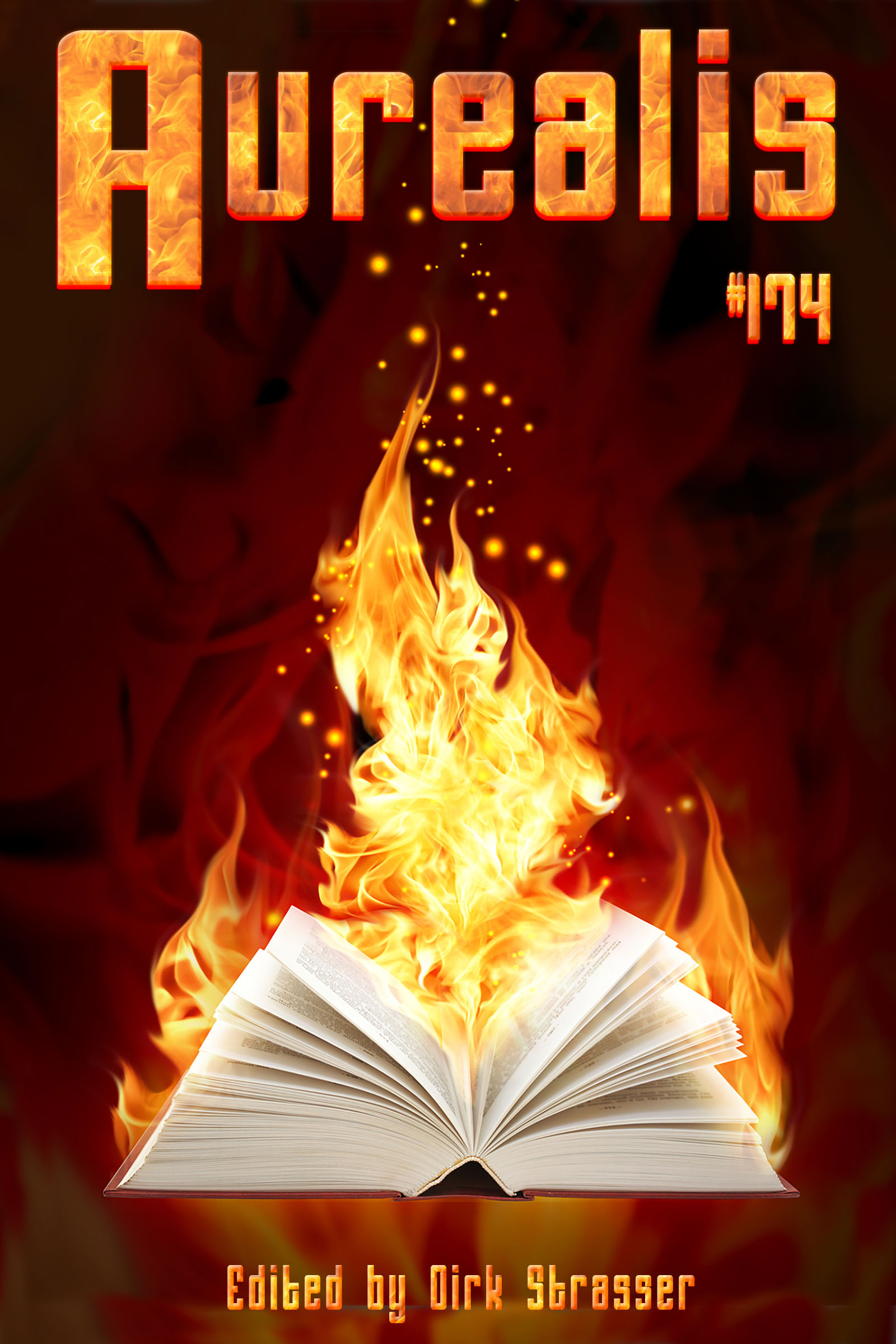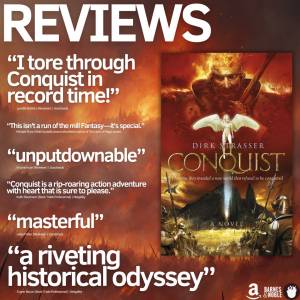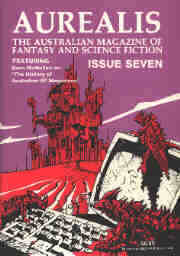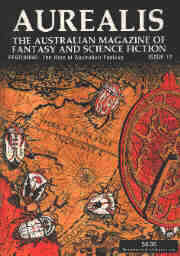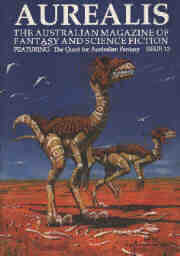Aurealis #174
$3.99
Journey into the new worlds of Aurealis #174 with Dirk Strasser’s editorial look at the growing wave of historical fantasy (or histasy) publishing, Joe Ford’s ‘Forever’, Michael Zeit’s ‘Lucy’ and A T Sayre’s ‘You Look a Lot Like Aton Fuller’, plus a wealth of science fiction, fantasy and horror non-fiction, reviews and illustrations.
- From the Cloud — Dirk Strasser
- Forever — Joe Ford
- Lucy — Michael Zeit
- You Look a Lot Like Aton Fuller — A T Sayre
- Hiding Your Gender: The Politics of Gender in the SF Publishing Industry — Lynne Lumsden Green
- Adventures in Literary Forensics: Chandler’s Lost Stories — Steve Davidson
I went to a panel on historical fantasy at the recent Science Fiction Worldcon in Glasgow. I was particularly interested in this subgenre because my own historical fantasy, Conquist, was for sale for the first time at the Con (although technically the publishing date was 1 September). In fact, I was hoping to sit on that panel but missed the expression of interest deadline (which is not like me, but there were extenuating circumstances—long story!).
Anyway, while romantasy is the subgenre currently having its moment in the sun, historical fantasy (I’m going to call it histasy) could be waiting in the wings as the next big thing. Publishers and booksellers love comparisons (if you like Book A, you’ll like Book B), so as part of my marketing research for Conquist, I’ve looked into the histasy phenomenon and have come up with a few surprises.
Firstly, histasy does seem to be on the rise (and I certainly wasn’t expecting that when I was writing Conquist). Let’s start with the massive Outlander series by Diana Gabaldon, spanning 18th century Scotland, France and America, which is now nine books and counting, with some of the books candidates for the longest SFF novels ever written, and has been adapted into a long-running Netflix series. Yes, Outlander is actually a historical romance fantasy (histromantasy?), but let’s not go down the fraught path of triple-barrelled portmanteaus.
Then there’s the New York Times best-selling author R F Kuang’s Babel, which won the Nebula Award, the Locus Award, the British Book Award, Blackwell’s Book of the Year for Fiction and would have had a good chance of winning the Hugo Award if it hadn’t been disqualified by Chinese state censorship. It’s set in an alternative-reality 1830s England, where Britain’s supremacy is driven by the use of magical silver bars that derive their power from words in different languages that have similar—but not identical—meaning.
V E Schwab’s The Invisible Life of Addie LaRue follows a young French woman in 1714 who makes a Faustian bargain for immortality that curses her to be forgotten by everyone she meets. It was on the New York Times Best Seller list for 37 consecutive weeks and is scheduled for a film adaptation.
While most histasies until now have tended to focus on British and Western European history from the Middle Ages up to the 19th century, there is wealth of unexplored eras and geographic areas open to discovery by the subgenre. My own novel Conquist is set in 1538 Peru at the time of the Spanish conquest of the Inca Empire, where an army of conquistadors enter a portal and invade a new (fantasy) world in the search for gold and glory with a mission to convert the beings they find there to Christianity.
The only histasy I’m aware set at that time period as Conquist with Spanish main characters is the recently published The Familiar by Leigh Bardugo, who is best known for her YA fantasy Shadow and Bone books, which were made into a stunning Netflix series. The Familiar is set against the backdrop of the Spanish Inquisition and, like The Invisible Life of Addie LaRue, has a diabolical Faustian bargain at its heart.
Since Inca characters also feature in Conquist, I’ll mention Civilizations by French writer Laurent Binet, another histasy that I’ve read recently, which asks the question: What if the Inca conquered Europe? The novel won the Grand Prix du roman de l’Académie française and the English translation was awarded the Sidewise Award for Alternate History.
So, if like me, you’re into both history and fantasy, there’s a growing body of histasy making waves in publishing.
All the best from the cloud!
Dirk Strasser
From Forever by Joe Ford:
Raiding houses is easier now that the bodies are gone.
From Lucy by Michael Zeit:
My finger pressed record on its third attempt to find the button. ‘Log seven dash eight. Doctor Saffron, beginning interview with subject 23, codename Lucy.’
From You Look a Lot Like Aton Fuller by A T Sayre:
I hear that every once in a while these days. People mention it almost in passing, often as an aside in a conversation about something else entirely. My remarkable resemblance to one of the icons of the age.
From Hiding Your Gender: The Politics of Gender in the SF Publishing Industry by Lynne Lumsden Green:
Do you read novels without any regards to the gender of the author of your book?
From Adventures in Literary Forensics: Chandler’s Lost Stories by Steve Davidson:
‘Literary forensics’ is a term used to describe the act of applying forensic techniques to the uncovering of lost stories, unpublished editions and hidden literary history.

